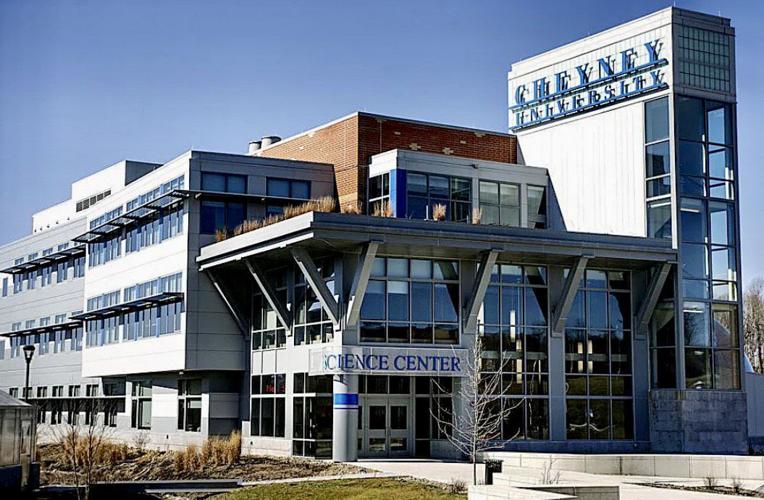By Michael Coard
Exactly 188 years ago on Feb. 25, 1837, Cheyney University was born as a result of the 1829 last will and testament of Richard Humphreys when his estate in Philadelphia adopted the “African Institute’s text, preamble, and constitution” for the “education and improvement of the Children and youth, of the African race, by instructing them in literature, Science, Agriculture, and the Mechanical Arts.”
Because of the blatant anti-DEI and anti-affirmative action racism of KKK-endorsed President Orange Hitler, there’s an urgent need to learn about, enroll in, and financially support Historically Black Colleges and Universities (HBCUs) in general and Cheyney University in particular.
That is why I am dedicating this week’s column to Cheyney University. And I hope that once you learn the five following facts about my alma mater, you’ll encourage your children, grandchildren, nieces and nephews to enroll and your family and friends to send donations.
Although four HBCUs can legitimately brag about being the first, Cheyney really is the first. Here’s proof: Cheyney University was founded on Feb. 25, 1837 as the African Institute and two months later was renamed the Institute for Colored Youth. It was the first “Black institution of higher learning in America.” As an aside, I must note that Cheyney did not ban women when it was founded.
Lincoln University in Pennsylvania was founded 17 years later in 1854 as the first “Black degree-granting institution in America.” As an aside, Lincoln did not admit women until 1952.
Wilberforce University in Ohio was founded in 1856 and is the first “completely Black-owned and completely Black-operated degree-granting institution in America.”
Shaw University in North Carolina was founded in 1865 and is the first “Black degree-granting institution in America’s brutally racist Deep South.”
Cheyney University’s current location is not its original location. When it was still known as the Institute for Colored Youth, it started out with five students at a 136-acre farm on Old York Road, seven miles north of the city in Montgomery County. It moved to its current location 25 miles west of Philadelphia after its trustees in 1902 purchased George Cheyney’s farm (which was a station on the Underground Railroad) and began setting up there. It officially opened on those lushly beautiful grounds on May 9, 1905 with none other than Booker T. Washington as the school’s keynote speaker.
In 1849, the school relocated from Old York Road to a single classroom in a building on Barclay Street until 1852 and from 1852-1857 was headquartered at Seventh and Lombard streets before moving to Ninth and Bainbridge (then known as Shippen) streets in 1866 where it remained until 1903.
Four
The Institute for Colored Youth was retitled Cheyney Training School for Teachers in 1914 and Cheyney State Normal School in 1920. (Incidentally, schools that trained students to become teachers were called “normal” schools, based on the French word “normale,” which means “standard” or “model.”) In 1951, it became Cheyney State Teachers College and was renamed Cheyney State College in 1959. In 1983, it became Cheyney University.
Edward A. Bouchet, a graduate of the Institute for Colored Youth, became the first Black person in American history to earn a Ph.D. He accomplished this amazing intellectual feat in 1876 after completing his dissertation in physics at Yale University. And two years earlier, he was elected into Phi Beta Kappa.
For more information about Cheyney’s renowned history, read a scholarly and meticulous book published in 1990 and entitled “A Living Legend: The History of Cheyney University 1837-1951” by Charline Howard Conyers.
Speaking of remarkably enlightening books about Cheyney University, you must also read “The 1st HBCU.” This book, written by Rainie Williams, a 2008 alumnus, was published just last year and can be purchased at blackandnobel.com.
And if you are interested in joining the activist alums who- since 2014- having been successfully battling in the courts, in the streets, and in the state legislature to not only save Cheyney University but also to enhance it, contact Heeding Cheyney’s Call by logging on to HeedingCheyneysCall1837.org. I should mention that I am legal counsel for that influential organization.
Happy 188th Birthday, Historic Cheyney University! We need you now more than ever in recent history.

